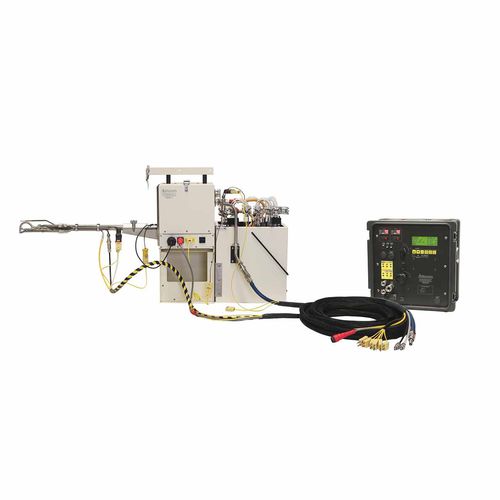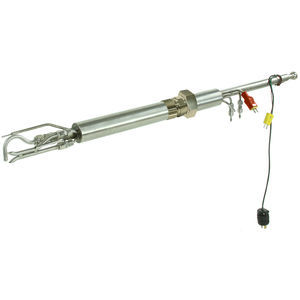
- Metrology - Laboratory
- Analytical Instrumentation
- Gas sampler
- Apex Instruments, Inc.
Gas sampling system PFAS

Add to favorites
Compare this product
Characteristics
- Sample type
- gas
Description
The Apex Instruments PFAS Sampling System is based on the EPA Other Test Method 45 (OTM-45) for the isokinetic collection of PFAS from stationary sources. PFAS stands for per- and polyfluoroalkyl chemicals, which are found in a wide range of consumer products and facilities. PFAS can accumulate in the body and may lead to adverse health effects. Gaseous and particulate PFAS compounds are sampled isokinetically from an emission source and collected in a multi-component sampling train.
Our train is similar to the EPA Modified Method 5 Train used for semi-volatile compounds, with the addition of a second XAD-2 sorbent module for monitoring breakthrough. The stack gas is typically sampled for 4 hours at rate of less than 12.5 LPM to minimize the pressure drop across the XAD-2 module since high pressure drops across the resin can promote breakthrough. The filter, sorbent cartridge, and water impingers are recovered separately, and the glass components are rinsed with a methanol/ammonium hydroxide solution.
Apex Instruments has developed a new PFAS glassware train based on the current EPA Method in development. The train is a modified method 5 system with the addition of our new compact vertical condenser and two additional XAD sorbent traps followed by knockout impingers.
The OTM-45 train components consist of:
- the front half glassware surfaces (nozzle, probe, and front half filter holder)
- the glass fiber filter
- the back half glassware surfaces (back half filter holder and condenser coil) and
- the solid sorbent (XAD-2®) modules.
VIDEO
Catalogs
No catalogs are available for this product.
See all of Apex Instruments, Inc.‘s catalogs*Prices are pre-tax. They exclude delivery charges and customs duties and do not include additional charges for installation or activation options. Prices are indicative only and may vary by country, with changes to the cost of raw materials and exchange rates.







